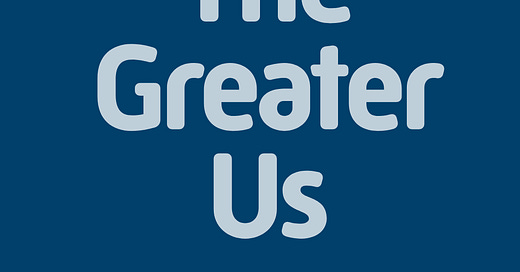In any group setting, moments of tension can arise when someone says something offensive. These "hot moments" often involve issues of power and oppression. As a leader or participant in these spaces, how should you respond when this happens? Should you intervene right away? What if the offensive comment doesn’t directly affect you but may hurt others in the group?
The answer, as is often the case in complex situations, is: it depends.
Every scenario is unique, with factors like group dynamics, hierarchy, and the duration of the group's interaction playing a key role. While there isn’t a one-size-fits-all solution, there are practical strategies that can reduce the intensity of these hot moments or prevent them from escalating.
Listen to the audio version of this post here or find The Greater Us wherever you get your podcasts!
Understanding Hot Moments Beyond the Flashpoint
Initially, many people think of hot moments as spontaneous incidents—someone says something hurtful in a brief, one-off meeting, for instance. But more often, these moments happen in established group settings, where people have ongoing relationships, like a semester-long class, a workplace team, or a faith community. These moments aren’t discrete; they are shaped by the existing “container” or culture of the group.
In these settings, what happens before and after the hot moment is just as important as the moment itself. The environment, group dynamics, and leadership all play a huge role in whether these moments lead to growth or division.
Silence Isn’t Neutral
One key point to emphasize, particularly for leaders, is that silence in the face of harm equals endorsement. If someone in a position of power—such as a manager, seminar leader, or group facilitator—hears a harmful comment and says nothing, the message is clear: what was said is acceptable. This can create an unsafe environment for those who were harmed by the comment. So, intervention from those with authority is crucial.
How to Intervene in Hot Moments
The nature of the intervention depends on the group and its structure. In a short-term group with no ongoing relationships, a boundary might be set quickly. For example, saying, “I’m sorry, that term you used is actually a slur, and I'm going to ask you not to say that here,” or even, “We’re getting off-topic, so let’s redirect.”
In groups with more established relationships, intervention could look different. For instance, you might express discomfort without directly challenging the person who made the comment. Saying, “What just happened made me uncomfortable, and I’d like to talk about that,” can open the door for dialogue.
Even if you’re not in a leadership position, speaking up is still important. Acknowledging that something harmful occurred can help the group address the issue rather than sweeping it under the rug.
Building Group Agreements to Get Out in Front of Hot Moments
One powerful and proactive approach to minimizing hot moments is creating clear group agreements or ground rules for engagement. This is especially useful in classrooms, workplaces, and other settings where people will be interacting regularly. These guidelines help set expectations and create a culture of respect from the start.
Another key factor is relationship-building. When group members have strong, positive relationships, they’re more likely to engage in repair processes after a conflict. If someone says something hurtful but we have a good relationship, I’m more inclined to address the issue in a constructive way rather than letting it fester, or putting distance between me and that person.
Navigating Allyship and Support
Allyship in these moments often extends beyond the immediate situation. After a hot moment, checking in with the person who was harmed can be powerful. You might ask, “I noticed what happened earlier—how can I support you?” or, “If this happens again, what do you want me to do?”
This requires trust and ongoing relationship-building, but it’s an essential part of creating a more inclusive environment where everyone feels safe and supported.
The Bigger Picture: Shifting Group Dynamics
At its core, our work is about helping groups and organizations create inclusive spaces that support people from diverse backgrounds and identities. One major barrier to this is the widespread aversion to conflict. Too often, uncomfortable moments are glossed over, which can lead to deeper issues—people leaving the group, or the group itself falling apart.
Repairing harm is an essential skill for leaders and group members alike. But even more important is creating an environment where these moments occur less frequently and are less charged when they do happen.
If you want to speak more about handling difficult moments or building inclusive group cultures, please get in touch!
Thank you for reading, and please follow us on Substack to be notified about new posts and podcast episodes!







Share this post